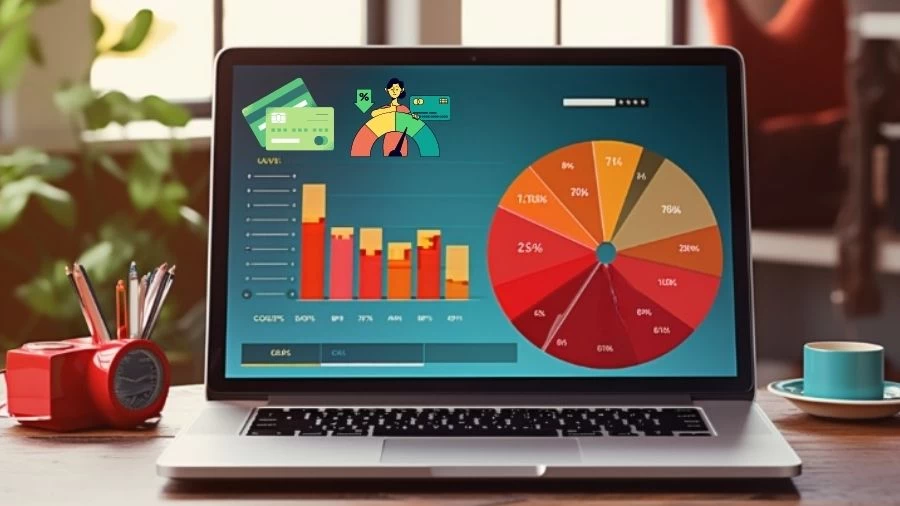
How Often Do Your Credit Score and Credit Report Update?
Credit scores and credit reports are not updated in real-time; they typically update once a month or every 45 days when lenders provide new information to the credit bureaus, leading to regular, but not immediate, updates.
Updated Oct 16, 2023
On This Page
- How Often Do Your Credit Score and Credit Report Update?
- When Can You Expect Your Credit Score to Update After Clearing Debt?
- What Does Rapid Rescoring Involve?
- How Can You Monitor Your Credit Score Without Charge?
- What Causes Drastic Fluctuations in Credit Scores?
- Does Negative Impact Go Away After 7 Years in the USA?
How Often Do Your Credit Score and Credit Report Update?
Your credit reports are updated when lenders provide new information to the nationwide credit reporting agencies (Equifax, Experian, TransUnion) for your accounts. This usually happens once a month, or at least every 45 days. However, some lenders may update more frequently than this. So, say you paid down a credit card recently. You may not see your account balance updated on your credit report immediately.
If you look at the account in your TransUnion credit report, you may see a line that reads “Date Updated.” This would tell you the most recent day the account information was provided to TransUnion. You can get your credit report from each of the three nationwide credit reporting agencies weekly at annualcreditreport.com. Your credit scores can update often—multiple times a month even. It all depends on how many active credit accounts you have.
When information is received by the credit reporting agencies from your lenders, it’s typically added to your credit reports immediately. And when the information in your credit report changes, your scores may as well.
Because lenders don’t all provide updates on the same day, new information may be added to your reports quite frequently, so your credit score can change frequently as well. Not all lenders report to all three credit reporting agencies, which is one reason why you may see some variations in your credit scores.
When Can You Expect Your Credit Score to Update After Clearing Debt?
If you’ve paid off debt and are hoping to see a change in your credit score, the lender first needs to provide the updated balance to the credit reporting agencies. As mentioned before, this usually happens on a monthly basis. Once the new balance is updated on your credit reports, you may see a change in your score.
However, if you have multiple accounts, you may have information being added or changed frequently. It’s important for all accounts to be healthy for your credit score to improve. Making positive strides in one account, but missing a payment or increasing your balance in another, could counteract it.
What Does Rapid Rescoring Involve?
Rapid rescoring is a specialized service that your lender might use to expedite the process of updating your credit report and, in turn, your credit score. This service becomes particularly handy when you're seeking approval for a credit product, particularly a mortgage, and your credit score is nearly meeting the lender's requirements.
If you've recently taken positive steps to improve your credit, but these changes haven't yet shown up on your credit reports, your lender can request that this information be swiftly incorporated. The advantage is that your credit report and score can be refreshed within a few days, bypassing the usual waiting period for the next reporting cycle.
However, it's crucial to keep a few things in mind. You cannot directly initiate a rapid rescore; it must be requested by your lender, and they typically charge a fee for this service. Also, rapid rescoring doesn't rectify past credit mistakes or magically erase negative information.
Instead, it accelerates the reporting of recent positive credit actions, so the most reliable way to improve your credit is by consistently practicing good financial habits, like paying down debts and meeting your payment obligations, which should gradually reflect in your credit report and scores each month.
MarketsHost is a versatile website offering valuable resources for all things Banking, from Credit Cards to Loans. Explore our wide range of financial information and services today.
How Can You Monitor Your Credit Score Without Charge?
You can easily monitor your credit score without incurring any charges, and there are numerous resources available to assist you. It's important to note that there are two main types of credit scores: FICO® Scores and VantageScores. FICO Scores are more widely used in lending decisions, accounting for about 90% of them. Here's how you can access your free credit score:
One of the simplest methods is through your credit card issuer. Many card issuers offer their cardholders free access to their FICO® Score or VantageScore. Additionally, there are free credit score resources provided by organizations like Experian, Discover, and Capital One.
Some specific examples of where you can obtain your FICO® Score for free include Experian Boost™ (available to everyone), Discover Credit Scorecard (open to everyone), American Express credit cards, Bank of America credit cards, Citi credit cards, and Discover credit cards through the Discover Credit Scorecard, and Wells Fargo credit cards.
What Causes Drastic Fluctuations in Credit Scores?
Credit scores typically change gradually, reflecting your ongoing financial behaviors. However, there are certain situations that can cause significant fluctuations in your credit scores. The primary factors influencing your credit scores are timeliness of payments and credit utilization, which is the proportion of available credit you use. Here are some common causes of abrupt credit score drops:
Late payments
Missing a payment and falling behind by 30 days or more can result in a substantial decrease in your credit score. Late payments have a significant and long-lasting impact, as they stay on your credit report for seven years. It's crucial to catch up on overdue payments as soon as possible to minimize the negative impact. The longer the delinquency, the more severe the consequences.
Increased credit utilization
Your credit utilization, or how much of your available credit you're using, also plays a substantial role in your credit score. A sudden surge in credit card debt can elevate your utilization ratio, leading to a decline in your credit score.
Conversely, paying down credit card debt can positively affect your score. Opening a new credit card can be a strategic move to reduce your overall credit utilization, but it's essential to research the eligibility criteria to avoid unnecessary hard credit inquiries. Remember that your credit score will change once the new balance is reported to the credit bureaus.
Sudden and unexplained fluctuations in your credit score may signal identity theft, warranting a thorough investigation. Regularly monitoring your credit score and reviewing your credit report can help you detect unusual changes and address them promptly. Checking your own credit score doesn't have any adverse effects on your score, so it's a wise practice to stay informed and protect your financial well-being.
Does Negative Impact Go Away After 7 Years in the USA?
In the United States, it is generally true that most negative items on your credit report will automatically be removed after seven years from the date of your initial missed payment. Once these items are removed, you may experience an improvement in your credit scores. However, it's important to note that the exact impact on your scores can vary depending on your overall credit behavior.
If you continue to use credit responsibly and make on-time payments, your credit scores may begin to recover. In some cases, your score could potentially return to a level similar to where it started within a timeframe ranging from three months to six years. This means that while negative items can remain on your credit report for seven years, their influence on your credit scores can gradually lessen as you demonstrate responsible financial behavior
How Often Do Your Credit Score and Credit Report Update - FAQs
1. How frequently do lenders update credit reports?
Lenders typically provide updates to credit reports on a monthly basis or at least every 45 days.
2. Can credit scores change multiple times a month?
Yes, credit scores can change frequently, especially if you have multiple active credit accounts, as lenders report new information at different times.
3. Do all lenders report to all three credit bureaus?
No, not all lenders report to all three major credit bureaus, which can lead to variations in credit scores.
4. Can checking your credit report hurt your credit score?
No, checking your own credit report, often known as a soft inquiry, does not affect your credit score.
5. Where can I access my free credit report?
You can obtain your free credit report from each of the three nationwide credit reporting agencies once a week at annualcreditreport.com.




